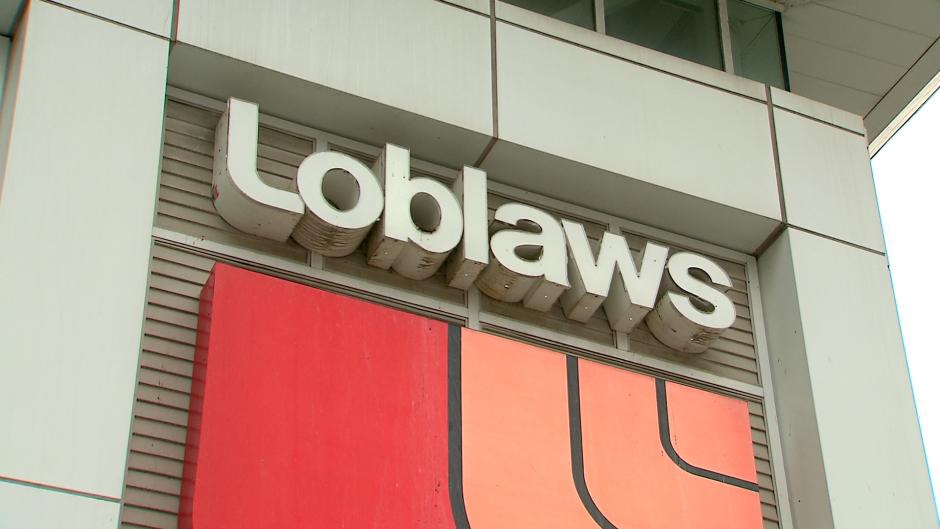Jun 12, 2020
'A disgrace': Union boss blasts grocers for scrapping wage bump
, BNN Bloomberg
Loblaw, Metro to end pandemic wage premium
The head of Canada’s largest trade union said Friday that members may strike if their "hero pay" is not reinstated for the duration of the COVID-19 pandemic.
"[Loblaw Cos Ltd.] is a company that is doing incredibly well during this pandemic," Unifor national president Jerry Dias told BNN Bloomberg in a phone interview. "To somehow take away $2 an hour from the most underpaid workers in Ontario is a disgrace."
Major Canadian grocery chains have paid their essential staff an extra two dollars per hour since March to help compensate for the heightened risk of potentially being exposed to COVID-19 as grocery stores remained open throughout the pandemic. Both Loblaw and Metro Inc. said Thursday they plan to end their pandemic wage premiums on Saturday.
"If Galen Weston doesn't fix it, then I'll fix it," Dias said, referring to Loblaw's chairman and chief executive officer.
"One thing that's for sure is that the public understands that those workers deserve more respect. There's been this whole push toward part-time jobs so they can pay them less when corporations are making billions of dollars. I think the public understands that the workers are really getting the short end of the stick. If we need to go on strike to win justice, then that's what we'll do."
Unifor represents about 15,000 grocery workers across the country, and 35 union members who work at either at Loblaw's grocery stores or distribution centres have contracted COVID-19, Dias said.
Dias's comments come less than a day after Weston announced Loblaw's plan to end the wage premium program, saying in a statement "it is the right time" to reinstate workers' salaries to pre-pandemic rates.
“Things have now stabilized in our supermarkets and drug stores. After extending the premium multiple times, we are confident our colleagues are operating safely and effectively in a new normal,” Weston said.
In light of Loblaw's move to reduce wages back to pre-pandemic rates, a #BoycottLoblaws hashtag began trending on Twitter on Friday, with many social media users criticizing the grocer for not keeping the $2-an-hour premium in place.
Catherine Thomas, senior director of external communications at Loblaw, told BNN Bloomberg in an email that the company is in contract negotiations with Unifor for some of its stores in Newfoundland and Labrador and it would be inappropriate to comment on the union's latest missive.
However, Thomas added that the pay premium was introduced to recognize the company's workers who were asked to go "above and beyond" in the early days of the pandemic.
"At this point, we have invested far more in our colleagues and customers during the pandemic than we have earned in extra sales, and our investment in safety and sanitization will continue," Thomas said.
Desjardins Securities analyst Chris Li said in a research note that ending the wage increase is a "slight positive" for the grocery industry as that has accounted for a bulk of pandemic-related costs. "This provides greater visibility on costs as sales gradually normalize," Li said.
According to Unifor, Loblaw said it will pay workers a one-time bonus in July based on hours worked, amounting to $160 for an employee who works 40 hours per week.
Metro spokeswoman Geneviève Grégoire also confirmed that the Quebec-based company would end its hourly wage premium on June 13, but will award its part-time and full-time employees a one-time bonus of $100 and $200, respectively, next month.
"We are no longer working under the crisis conditions that prevailed from March through May as grocers were amongst the only retailers open to the public. Demand is stabilizing as other business are reopening," Grégoire told BNN Bloomberg in an email.
"A host of prevention measures have been implemented and adopted, by both employees and customers, and we are now transitioning into recovery while not letting our guard down."
A Loblaw spokesperson told BNN Bloomberg earlier that the company has paid $200 million in premium wages to its staff over the past 14 weeks since its policy was put in place. The company has spent about $280 million on all COVID-19-related costs, the spokesperson said.
A representative from Empire Co., which manages Sobeys Inc. among other grocery banners, wasn't immediately available for comment.
"They have no justification to remove that pandemic pay especially when so many of their employees are sick," Dias said.
- with files from BNN Bloomberg's Nicole Gibillini
WEIGH IN






